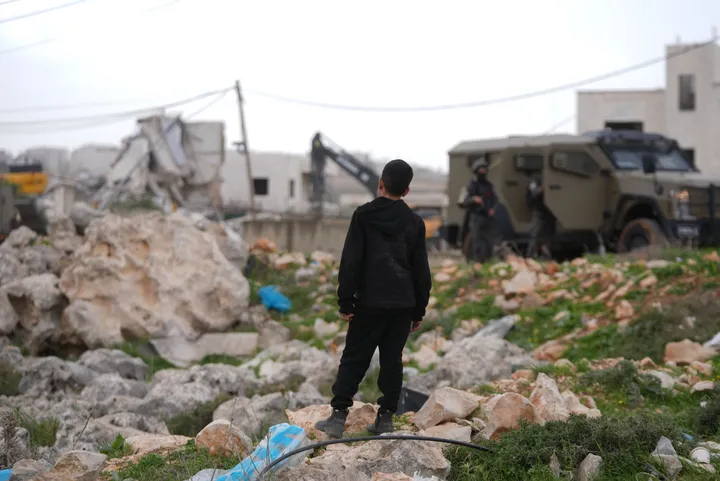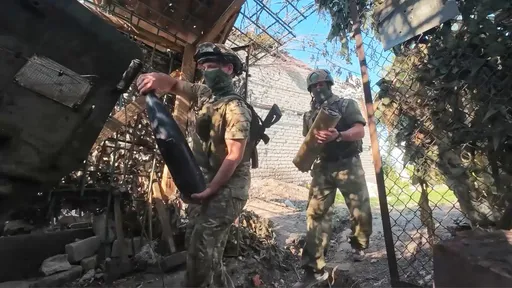The G7 summit in Biarritz was one of those rare moments in international politics where results seemed within sight.
Emmanuel Macron, the French President, had prepared well. The French media called him the “maestro conductor” playing a galvanising role on major international issues, most notably on Iran and on how to convince the US President, Donald Trump, to talk to Iran.
He offered to either soften sanctions on Iran or provide “a compensation mechanism to enable the Iranian people to live better” in return for full compliance with the nuclear pact, which the United States quit last year.
Macron also convinced President Trump and the Iranian President Hassan Rouhani to hold talks.
Yet neither side needed much convincing. As I argued here before, both sides have no choice but to talk.
It was clear since President Trump's first trip to France in June 2017, that France was well placed to bring Iran and the US together.
There were warm relations between Macron and Trump on the one hand, and on the other hand, France holds a priority position for Iran.
Ayatollah Ruhollah Khomeini, the leader of the Iranian Revolution of 1979, lived in France during the crucial final three months before the revolution.
Although the former French President, Valerie Giscard d'Estaing, had close ties with the former Shah of Iran, Mohammad Reza Pahlavi, he allowed Ayatollah Khomeini, to stay in Neauphle-le-Chateau near Paris, and communicate to the world his revolutionary anti-Shah messages, which contributed to the success of the revolution.
Macron, who said he had spoken with Rouhani, said that if the American and Iranian presidents met, “my conviction was that an agreement can be met” addressing Iran’s nuclear ambitions and its destabilising actions in the Middle East.
Although that long-awaited US-Iran meeting is highly likely, there remain enormous hurdles to overcome.
The enmity between the two countries is severe and deep-rooted. For Iran, it goes back to August 1953 and the US coup against Iran’s premier, Mohammad Mossadeq. For the Americans, equally painfully, it reverts to November 1979 when 52 American diplomats were held hostage by the revolutionary zealots in Iran for 444 days.
Decades later their pre-talk demands are already unworkable: the US insists on the removal of all Iranian ballistic missiles, and Iran demands the removal of all US sanctions. Neither would work.
But we have three presidents who are willing and enthusiastic for creating real change, each with their objective.
President Rouhani said if it helped the economy of his country he "wouldn't mind meeting with an individual" [meaning President Trump].
Rouhani has to comply with internal restrictions, but he is approaching the end of his second term and would prefer to go out having achieved his main ambition, which has always been some level of rapprochement with the West.
Iran’s worsening economic pressures are also threatening an internal uprising which the regime fears most, and expects Rouhani to manage.
President Trump, for his part, is approaching his second term elections and would be keen to secure a major foreign policy victory.
President Macron has not lost his ambition to lead as an international mediator and play the influential role that Angela Merkel has played for years.
Had it been up to Rouhani he would probably have already met with Trump. It is the hardliners in Iran who are blocking him, already hitting back.
“The affairs of the country would be resolved by hard work Mr. Rouhani, not by meetings with this or that diplomat,” headlines the hardline Keyhan.
The editorial ridicules Rouhani by using his anti-Trump quotes: “Like you said talks would be foolish”.
The main hurdle in Iran-US talks is, however, not the Iranian hardliners but the Israeli hardline Prime Minister, Benjamin Netanyahu who has been relentless in his efforts to deter President Trump from getting close to Iran.
Over the past two weeks, and as Trump has sounded more conciliatory, Prime Minister Netanyahu has begun a new anti-Iran campaign including verbal threats, military strikes and drones landing on Tehran’s allies in the region.
It is for the sake of Israel’s security that President Trump insists on the removal of Iran’s ballistic missiles.
Yet, equally strongly Iran feels its stockpile of missiles are its main guarantor against military strikes either by Israel, or the US and its allies in the region.
So, Iran would never negotiate its missiles. For its part, what Washington wants least is to loosen the noose of sanctions, which it believes are working by putting “maximum pressure” on Iran.
If the talks do materialise, the two sides need to start on what they agree on, such as the security of the Middle East. It should not be too challenging to bring Iran on board provided they are given guarantees that Israel will reciprocate.
As a first step to defuse tension, Washington could reinstate its sanctions waivers regarding Iranian oil exports and lift some of the banking sanctions. In return, Tehran would resume full compliance with the nuclear agreement and refrain from endangering shipping in the Gulf.























